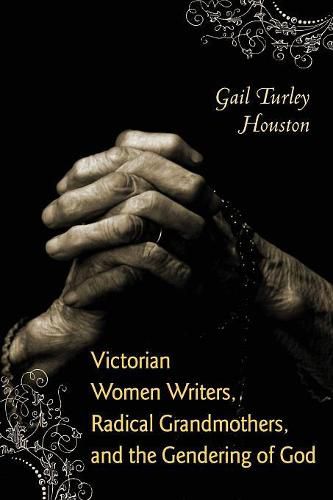Readings Newsletter
Become a Readings Member to make your shopping experience even easier.
Sign in or sign up for free!
You’re not far away from qualifying for FREE standard shipping within Australia
You’ve qualified for FREE standard shipping within Australia
The cart is loading…






This title is printed to order. This book may have been self-published. If so, we cannot guarantee the quality of the content. In the main most books will have gone through the editing process however some may not. We therefore suggest that you be aware of this before ordering this book. If in doubt check either the author or publisher’s details as we are unable to accept any returns unless they are faulty. Please contact us if you have any questions.
If Victorian women writers yearned for authorial forebears, or, in Elizabeth Barrett Browning’s words, for grandmothers, there were, Gail Turley Houston argues, grandmothers who in the late eighteenth and early nineteenth centuries envisioned powerful female divinities that would reconfigure society. Like many Victorian women writers, they experienced a sense of what Barrett Browning termed mother-want inextricably connected to mother-god-want. These millenarian and socialist feminist grandmothers believed the time had come for women to initiate the earthly paradise that patriarchal institutions had failed to establish. Recuperating a symbolic divine in the form of the Great Mother–a pagan Virgin Mary, a female messiah, and a titanic Eve–Joanna Southcott, Eliza Sharples, Frances Wright, and others set the stage for Victorian women writers to envision and impart emanations of puissant Christian and pagan goddesses, enabling them to acquire the authorial legitimacy patriarchal culture denied them. Though the Victorian authors studied by Houston–Barrett Browning, Charlotte Bronte, Florence Nightingale, Anna Jameson, and George Eliot–often masked progressive rhetoric, even in some cases seeming to reject these foremothers, their radical genealogy reappeared in mystic, metaphysical revisions of divinity that insisted that deity be understood, at least in part, as substantively female.
$9.00 standard shipping within Australia
FREE standard shipping within Australia for orders over $100.00
Express & International shipping calculated at checkout
This title is printed to order. This book may have been self-published. If so, we cannot guarantee the quality of the content. In the main most books will have gone through the editing process however some may not. We therefore suggest that you be aware of this before ordering this book. If in doubt check either the author or publisher’s details as we are unable to accept any returns unless they are faulty. Please contact us if you have any questions.
If Victorian women writers yearned for authorial forebears, or, in Elizabeth Barrett Browning’s words, for grandmothers, there were, Gail Turley Houston argues, grandmothers who in the late eighteenth and early nineteenth centuries envisioned powerful female divinities that would reconfigure society. Like many Victorian women writers, they experienced a sense of what Barrett Browning termed mother-want inextricably connected to mother-god-want. These millenarian and socialist feminist grandmothers believed the time had come for women to initiate the earthly paradise that patriarchal institutions had failed to establish. Recuperating a symbolic divine in the form of the Great Mother–a pagan Virgin Mary, a female messiah, and a titanic Eve–Joanna Southcott, Eliza Sharples, Frances Wright, and others set the stage for Victorian women writers to envision and impart emanations of puissant Christian and pagan goddesses, enabling them to acquire the authorial legitimacy patriarchal culture denied them. Though the Victorian authors studied by Houston–Barrett Browning, Charlotte Bronte, Florence Nightingale, Anna Jameson, and George Eliot–often masked progressive rhetoric, even in some cases seeming to reject these foremothers, their radical genealogy reappeared in mystic, metaphysical revisions of divinity that insisted that deity be understood, at least in part, as substantively female.